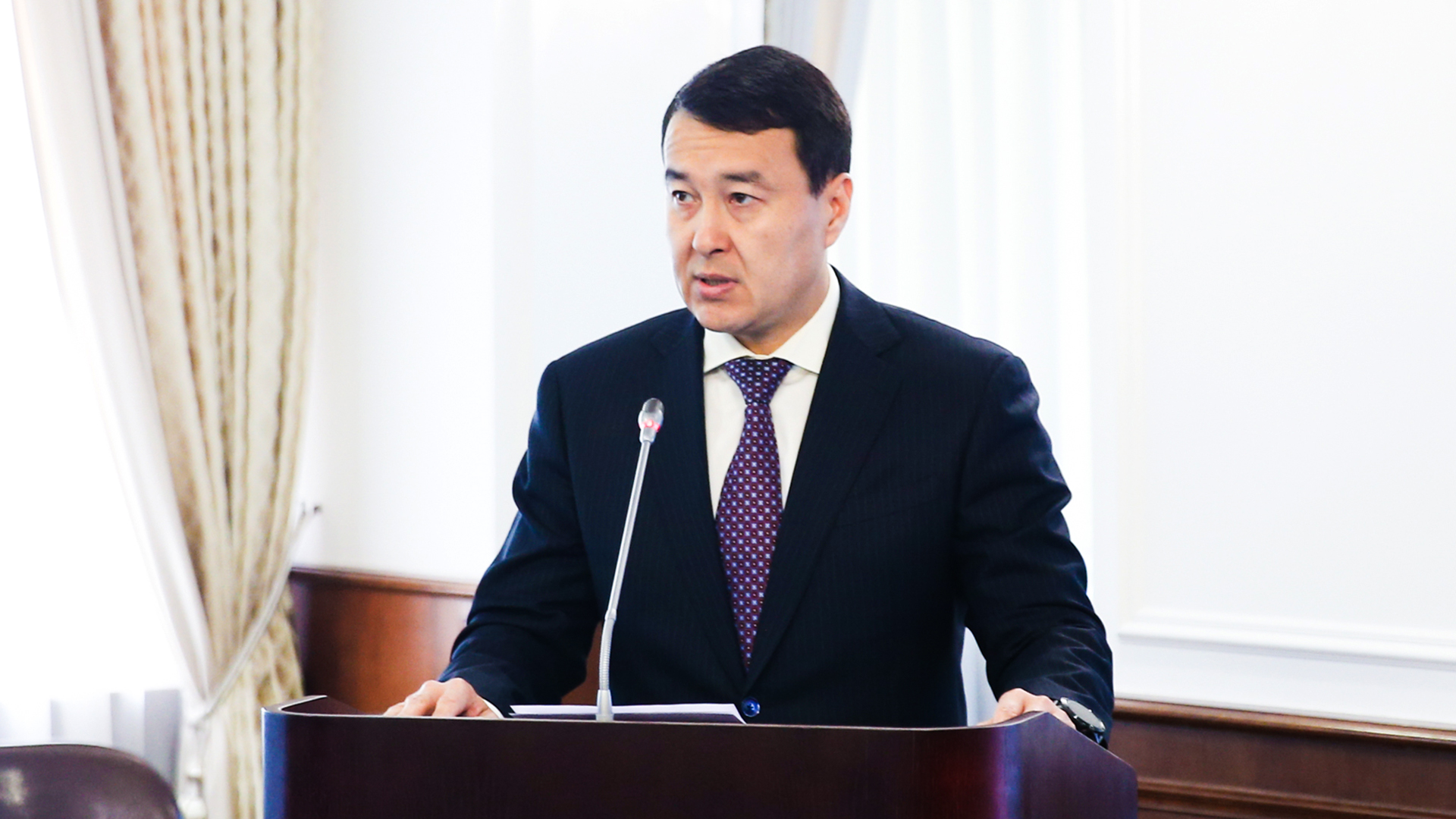02 July 2019, 11:18

At the Government session chaired by the Prime Minister Askar Mamin, First Deputy Prime Minister – Minister of Finance Alikhan Smailov presented the draft law on clarifying the republican budget for 2019.
As Smailov informed, in order to implement the instructions of the Head of State to improve the welfare of Kazakhstanis and address social issues, as well as the Presidential Decree "On measures to reduce the debt burden of citizens of the Republic of Kazakhstan" dated June 26, 2019, the Government developed a draft law on the clarified republican budget for 2019
“It is proposed to make the adjustment preserving the indicators of the Forecast of the Socio-Economic Development for 2019, amended in April 2019,” said Smailov.
The main parameters of the republican budget for 2019 also remain unchanged: revenues — 10.5 trillion tenge; expenses — 11.9 trillion tenge; deficit — 1.4 trillion tenge, or 2.1% of GDP.
Financial support for the implementation of presidential instructions will be provided through the redistribution of part of the funds provided for the creation of a direct investment fund (300 billion tenge out of 370 billion tenge).
The specification of the expenditure side of the budget was carried out in three directions.
First. Reducing the consumer debt burden on consumer loans.
As a direct and targeted financial assistance for each borrower assigned to the category of citizens who are in a difficult situation, the state will repay the main debt and the accrued remuneration in the total amount of up to 300 thousand tenge. For these purposes, the project provides for expenses of 88.5 billion tenge.
Second. Expansion and strengthening of existing measures to provide employment, support for low-income, large families and young people.
Third. The project proposes to increase the government reserve by 72.9 billion tenge. A part of these funds will be directed at eliminating the consequences of emergency in the city of Arys.
In addition, due to the internal redistribution of funds, 35.9 billion tenge will be used for financing a number of obligations that require urgent solutions.
“All developed social measures are very important. We propose to send the draft law to the Parliament for consideration,” said Smailov in conclusion.

Chairman of the National Bank Erbolat Dossaev reported on the additional measures taken by the National Bank in the implementation of the Head of State’s Decree, including measures to regulate the issuance of unsecured consumer loans.
According to him, in order to implement the Decree of the President Kassym-Jomart Tokayev on measures to reduce the debt burden of citizens, the National Bank together with the Government, banks and microfinance organizations developed a mechanism to repay loans of citizens in difficult circumstances, who have an unsecured loan not exceeding 300 thousand tenge as of June 1, 2019. Also, measures have been developed to reduce the debt burden for persons with a social status by repaying part of the total debt, lifting fines and penalties. Regulatory measures to prevent further growth of the debt burden have been envisaged.
Stay updated about the events of the Prime Minister and the Government of Kazakhstan - subscribe to the official Telegram channel
Subscribe